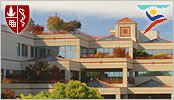Pediatric Pain Management
Pain is a problem that affects the physical and emotional well being of children. Pain that is poorly controlled has undesirable effects on a child’s physiological, metabolic, and emotional status. The Packard Children’s Hospital Pain Management Service offers the most effective relief possible from pain and other distressing symptoms. We use a multidisciplinary team approach that combines the knowledge and expertise of pediatricians, anesthesiologists, psychologists, advance practice nurses, and physical therapists. Other professionals, such as occupational therapists and child-life specialists, are included when appropriate. A variety of inpatient and outpatient services are available. Individualized treatment plans are developed that may include both conventional medical interventions as well as a variety of complementary approaches. Interventions available include:
If you are a parent of a child in the hospital, whom you wish to be seen by a consultant in pain management, please speak with your child's doctor or nurse practitioner and ask them to request a pain management consultation.
If your child is an outpatient, please ask your child's doctor to refer your child to the Pediatric Pain Management Clinic.
If you are a health care provider and wish to refer a child for evaluation and management in the Pediatric Pain Management Clinic, please download this form and fax it to the LPCH Referral Center, (650) 724-5344.
Inpatient Pain and Symptom Management Consultation Service
The Inpatient Pain and Symptom Management Service provides consultation to hospitalized patients who are experiencing pain secondary to a variety of illness or treatment factors. Patients are evaluated by a pain management physician and a clinical nurse specialist. Involvement of other disciplines, such as physical therapy or psychology is arranged when appropriate. Problems appropriate for referral include:
-
Pain due to injury
-
Post-operative pain
-
Pain secondary to illness or treatment (e.g., cancer, sickle cell anemia)
-
Nausea or other unpleasant symptoms or side effects that have not been successfully managed with conventional measures.
For information regarding inpatient consultation services or to request an inpatient consultation, contact our inpatient advanced practice nurse at (650) 497-8057, or ask the page operator to page beeper number 18779.
Pediatric Pain and Symptom Management Clinic
The Pediatric Pain and Symptom Management Clinic provides outpatient evaluation and treatment for chronic and recurrent pain problems, as well as for other problematic symptoms (e.g., nausea). A multidisciplinary team of pediatric pain specialists staffs the clinic. A physician, nurse practitioner, psychologist, and physical therapist jointly conduct the initial assessment. The team works in close collaboration to develop an individualized treatment plan. Problems appropriate for referral to the Pediatric Pain and Symptom Management Clinic include:
-
Headaches
-
Abdominal pain
-
Complex regional pain syndrome (reflex sympathetic dystrophy)
-
Fibromyalgia
-
Myofacial pain
-
Back pain
-
Pain secondary to chronic illness (for example, arthritis, cancer, etc.)
-
Nausea
-
Cyclic vomiting
-
Chronic fatigue syndrome
If you are a health care provider and wish to refer a child for evaluation and management in the Pediatric Pain Management Clinic, please download this form and fax it to the LPCH Referral Center, (650) 724-5344.
If you are a parent, download this form, and give it to your child's doctor to refer your child to the Pediatric Pain Management Clinic.
Chronic Pain Rehabilitation Program
A pain rehabilitation program is available for children and adolescents who are disabled by chronic or recurrent pain problems and have not demonstrated adequate functional improvement with outpatient services. Children are treated on with a biopsychosocial therapeutic program designed to meet the needs of children and adolescents with both medical and psychological difficulties. Most patients are treated as outpatients in an all-day program that combines several hours a day of intensive physical and occupational therapy, an hour or more a day of psychotherapy and family therapy, and 2 hours a day of educational assessments and interventions to restore and maintain the child's academic standing. To this is added medication management and monitoring as well as therapeutic nerve blocks when appropriate. The length of treatment in this residential program is typically 4 – 8 weeks.

